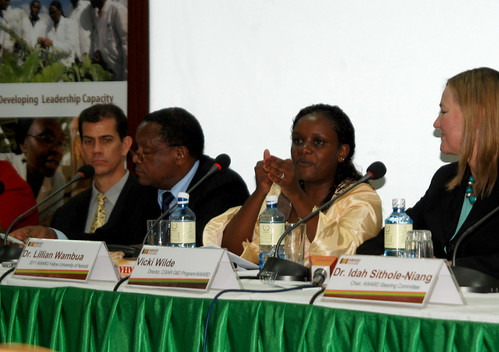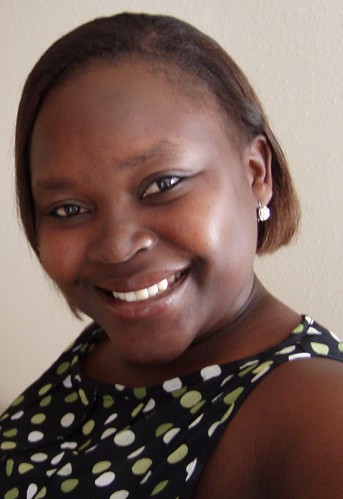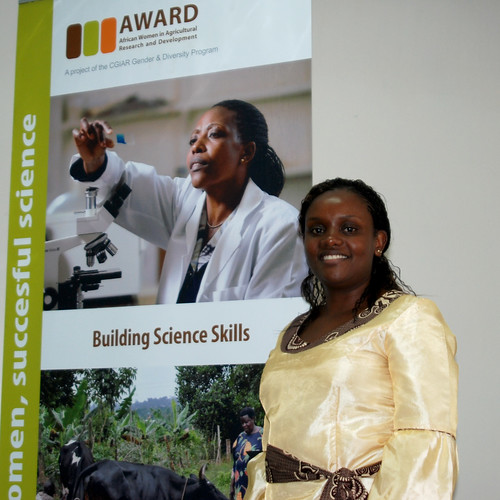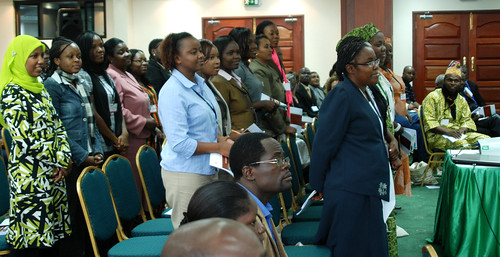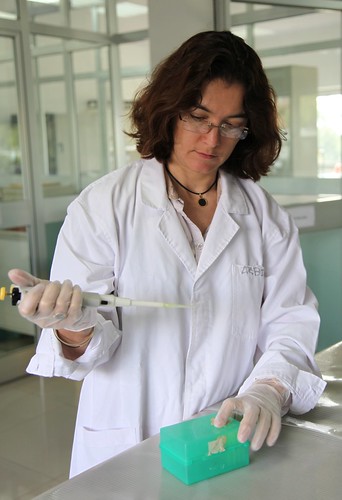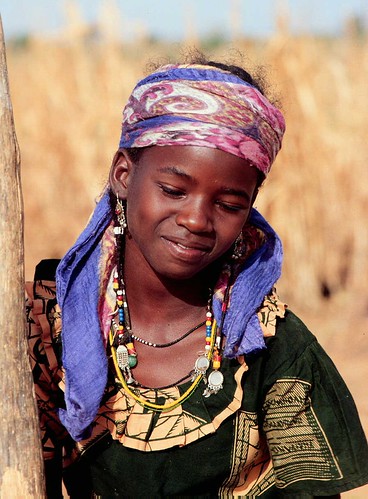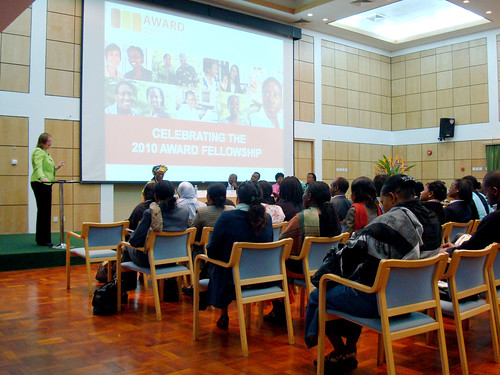Lillian Wambua (second right), a researcher in ILRI’s Biotechnology Theme and one of the 2011 African Women in Agricultural Research and Development (AWARD) fellowship winners, among panelists at the 2011 AWARD fellowship announcement (photo credit: ILRI/Njiru).
Following are remarks made by ILRI researcher Lillian Wambua during the announcement of the 2011 fellowships of the African Women in Agricultural Research and Development (AWARD) winners held on Thursday 18 August at Jacaranda Hotel in Nairobi
‘As a little girl, growing up in the arid Makueni District of Kenya’s Eastern Province, my family’s few goats, chicken and humped zebu cattle were the most important assets we had. The sandy and stony land although vast, was largely unproductive. Unable to count on growing food crops, our livestock were the key to our livelihood. The same holds true for rural populations across much of the African continent. Livestock are essential to their wellbeing.’
‘My work as a young scientist is particularly important when you consider the challenges we are facing with climate change and the current drought and the famine in our region. The drought has been particularly devastating for livestock keepers. At the same time, we are dealing with a mounting list of challenges. The world is getting warmer. We are seeing more sudden floods and more prolonged droughts. These changing weather patterns affect the distribution and prevalence of livestock diseases.’
‘During my studies, I realized that DNA technology held the key to future discoveries that would tackle many problems, including livestock diseases. During my first degree, I had the opportunity to work at the International Livestock Research Institute (ILRI) here in Nairobi.’
‘It was here that I knew I was on the right path.’
‘Now every day, my work is finding lasting solutions to secure healthy herds of livestock for rural populations. We are tapping into genetic diversity so these animals can adapt to changing environments and disease pressure and live long and strong to benefit farmers.’
‘In particular, I hope to help women farmers, as they and their children are the majority of the agriculture work force. I want to empower them so they can step up their agriculture activities and improve their own livelihoods.’
‘As a post doctoral fellow, in the early stages of an independent research career, I am truly looking forward to the opportunities that he African Women in Agricultural Research and Development (AWARD) will open up for me. I am looking forward to the visibility the fellowship might enable me to have and am excited about the potential to form strategic and lasting partnerships in my work. I see this as the start of a very exciting two-year period that has the potential to catapult my career.’
‘I look forward to the leadership skills I will acquire, to be a research leader and trend setter in my field.’
‘In this world you cannot accomplish great things alone. We need to collaborate. We need partnerships. I look forward to learning from my AWARD mentor and the other strong, intelligent and dedicated women scientists that I will have the opportunity to connect with through the AWARD program.
‘I have worked hard to get to this place, and know my work is just beginning. I am thankful for this opportunity offered by this program and look forward to each exciting day ahead in the process of finding solutions for our rural farmers.’
—
For more information on the ILRI’s 2011 African Women in Agricultural Research and Development (AWARD) fellowship winners and the projects they work in, visit the ILRI biotechnology theme blog: http://biolives.wordpress.com/

